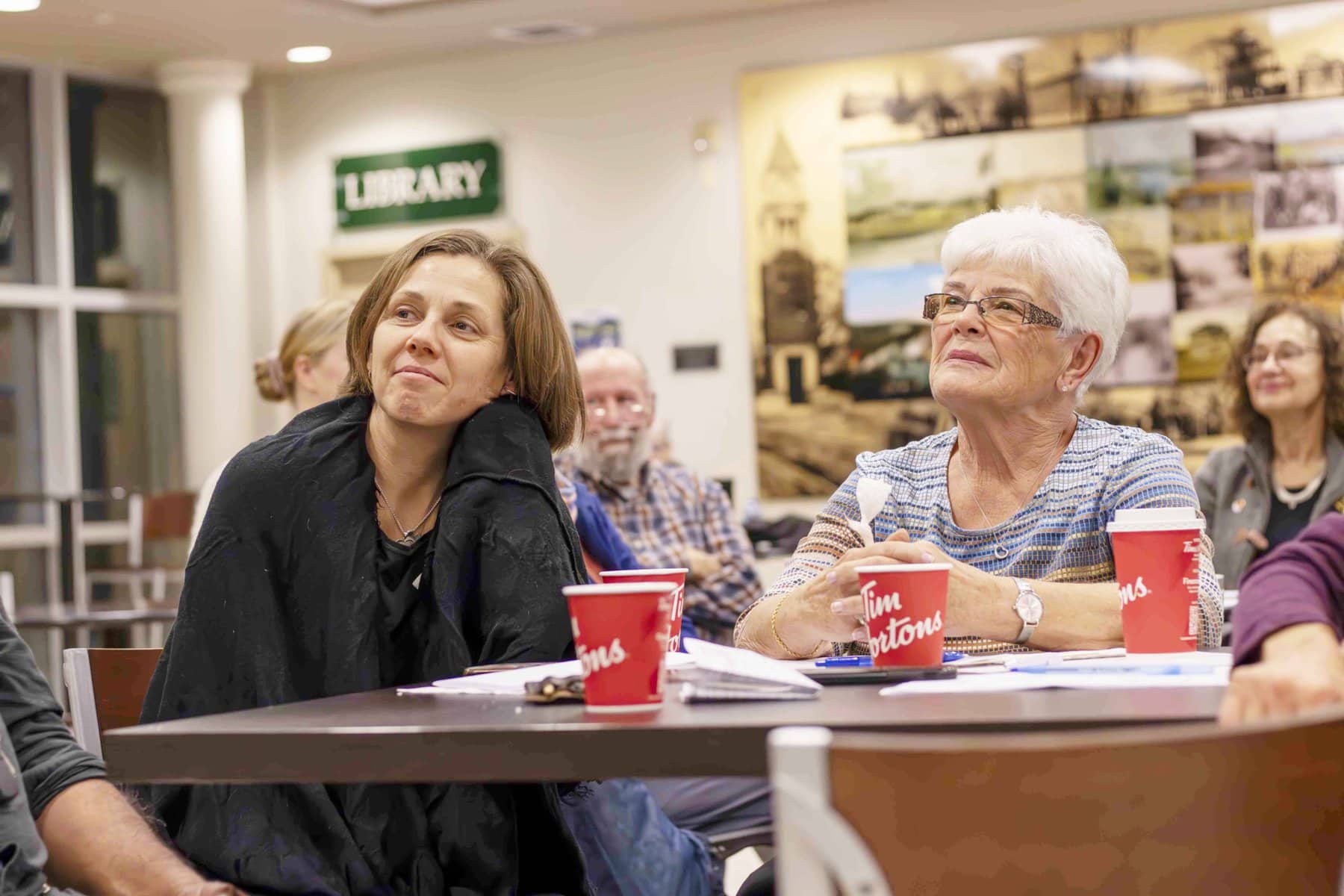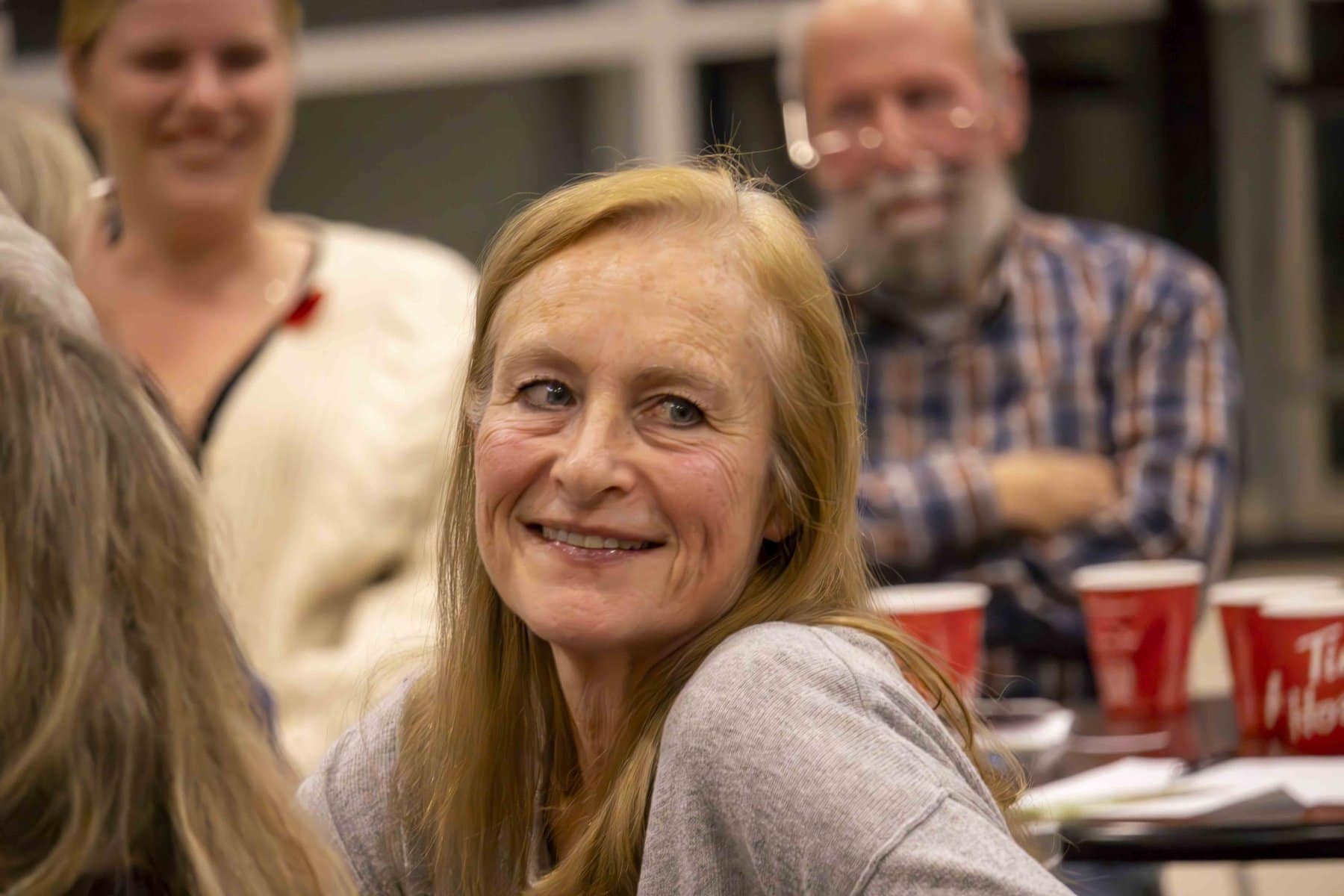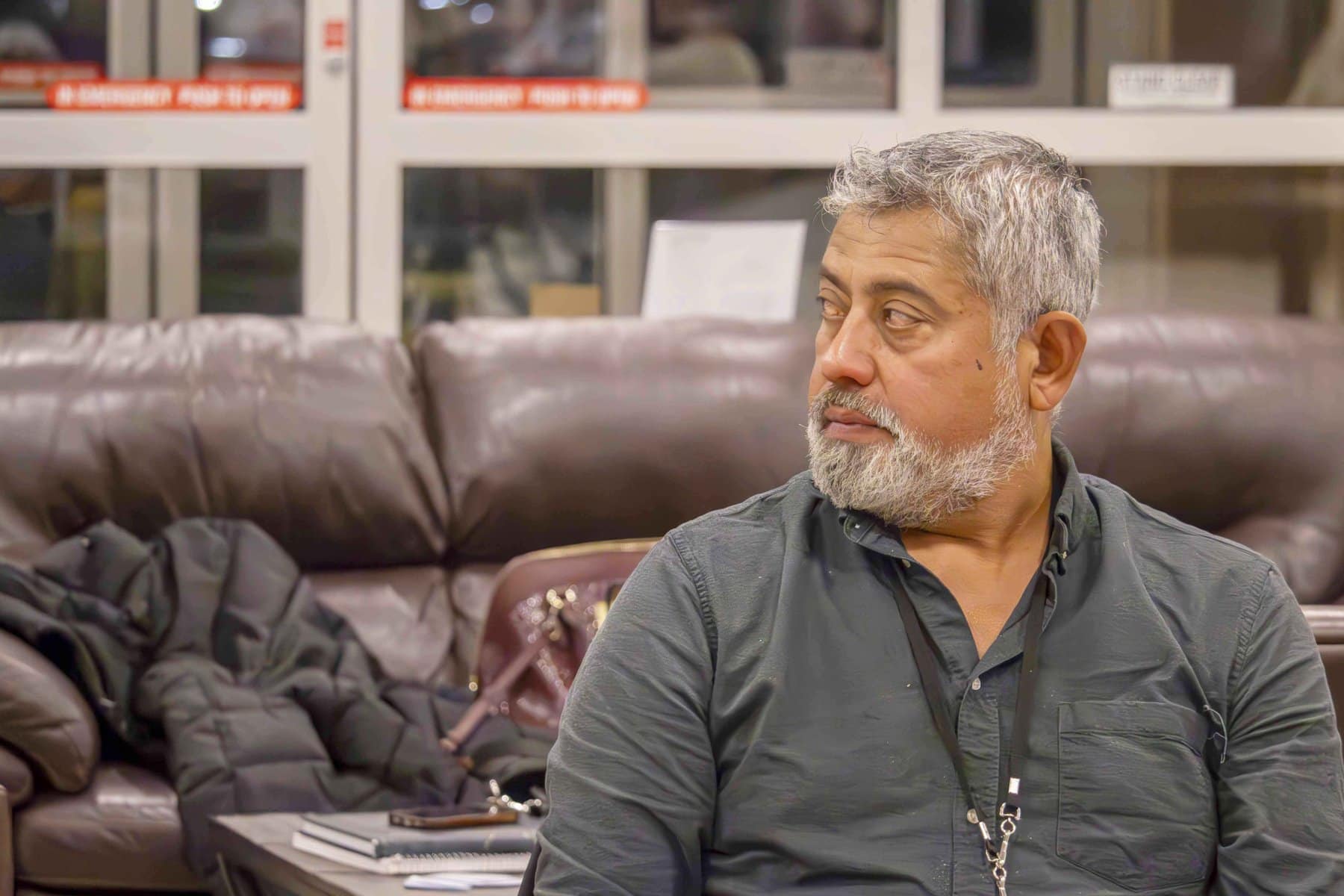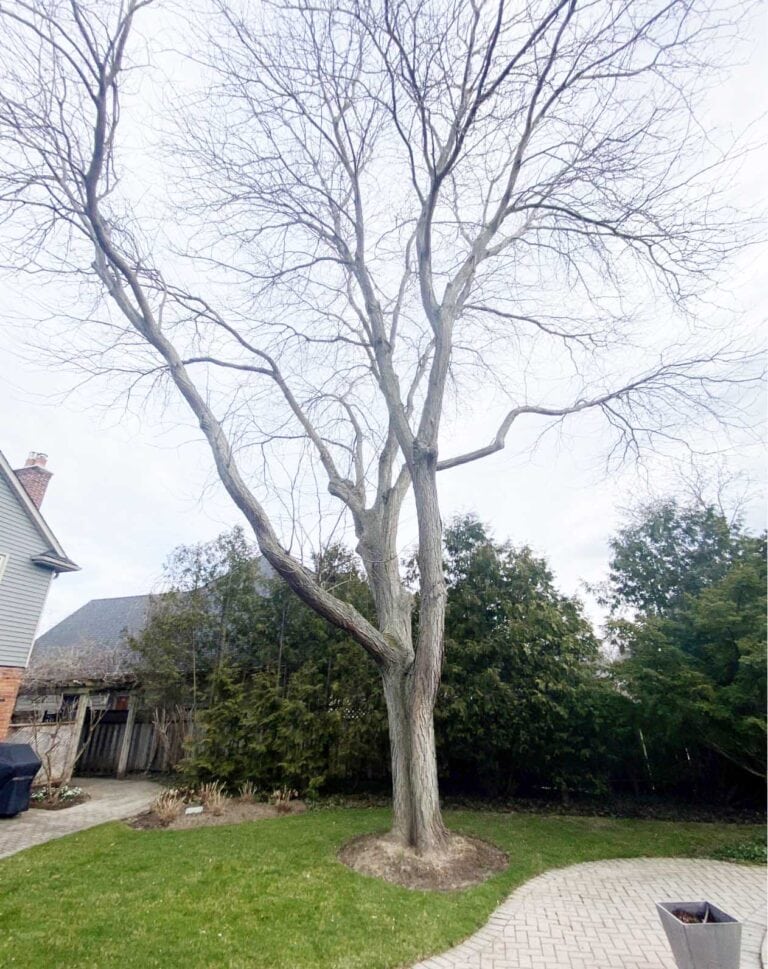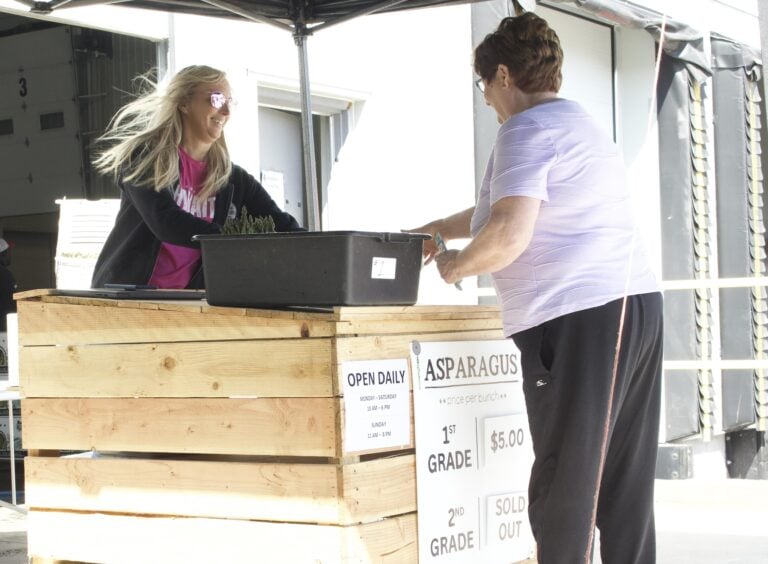About 25 people came out to the Niagara-on-the-Lake Community Centre on Friday night to sip warm beverages and talk about death.
It was the NOTL Community Palliative Care’s first-ever “death café,” a casual get-together where people can share their thoughts about death in a supportive environment.
Death cafés have been popping up all over the world since 2010 after the concept was first developed by Jon Underwood, a funeral adviser in Britain.
Psychotherapist Geoff Straw, who helped lead the meet, said death can be hard to talk about.
“Sometimes it’s hard, because it’s emotional, you know. It’s hard for us, but it might be harder for a family member,” said Straw, who works with both the dying and their families.
Many of the attendees said emotions can make it hard to have frank conversations about death.
Melissa Nixon, the palliative care group’s volunteer co-ordinator, said she tried to talk to her partner about getting their affairs sorted before they die.
“He just said, ‘No it’s too soon,'” Nixon said. “He’s not ready to talk about it yet. And some people, just, I don’t think ever are.”
Resident Marlene Bridgman said it’s important to get wills and funeral arrangements settled so families aren’t left fighting over estates.
She has seen too many families torn apart by the “almighty dollar” and did not want hers to be one of them, she said.
“It can be very complicated,” said Ruth-Ann Nieuwesteeg, a Niagara Falls city councillor and owner of Patterson Funeral Home.
Nieuwesteeg described one funeral she directed where the common-law spouse and parents of the deceased could not agree on how to handle the remains.
The spouse was able to prevent the parents from seeing the body before it was cremated, she said.
Bridgman said she has a cohabitation agreement with her live-in partner to help avoid situations such as the one Nieuwesteeg described.
“I don’t want to end up having any kind of issues like this,” she said.
Laura Fakla, who is single and without children, said she sometimes worries about who would take care of her if she ever got sick.
“That’s the thing that plays in my mind,” she said.
Fakla and a couple of her friends are talking about buying a home together to retire in so they don’t have to rely on an old-age home, she said.
Open conversations with her family and friends helped to manage her fears, she said.
Ann Wilson was in her thirties when she lost her sister and that spurred her to try to make the most of her time on Earth.
“That was a bit of a wake-up call,” Wilson said. “She said to me, ‘I’ve lived a full life. It’s just been shorter than most people.’ “
Wilson recalls her sister was accepting of death, even though she had a two-year-old at home.
During a question-and-answer period, Bridgman described her perfect afterlife as one where you’ve made all your apologies.
“Hell would be to have regrets that you didn’t say or do,” she said. “You only live once, but if you do it right, once is enough.”



